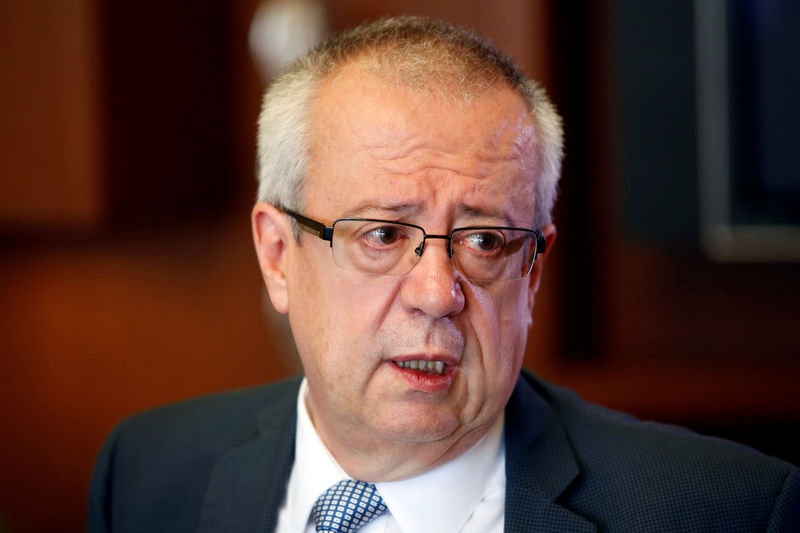MEXICO CITY (Reuters) - A Mexican state-owned power utility's move to seek arbitration over pipeline contracts was one of the final straws that pushed the country's former finance minister, Carlos Urzua, to resign from his post, Urzua said in an interview published Sunday.
The interview with Mexican magazine El Proceso marked Urzua's first public remarks since he announced his resignation with a scathing letter on Tuesday.
The departure of Urzua, known for his commitment to fiscal discipline and considered a moderate in the administration of Mexican President Andres Manuel Lopez Obrador, shocked investors.
While Urzua declined to detail all the final reasons for his departure, a dispute at the electricity commission, the CFE, over pipeline contracts was one of them, he said.
The CFE said on Tuesday it was seeking to recover $899 million in payments and wanted to negotiate "fairer" terms for a number of pipeline contracts signed by Mexico's previous government. Lopez Obrador has questioned the contracts, arguing they are too costly.
"A senior official and I went to tell the president a few days ago that what the CFE is doing is not for the benefit of Mexico," said Urzua. "We signed a contract and we must comply with it."
The companies involved include Canada's TC Energy (TO:TRP) and IEnova (MX:IENOVA), a unit of U.S.-based Sempra Energy (N:SRE), and the dispute has led to diplomatic friction with Canada.
Spokespersons for the president's office and finance ministry did not immediately respond to a request for comment.
Urzua added that he also opposed Lopez Obrador's decisions to cancel a partly-built airport for the capital and to construct a new oil refinery.
"I would not have devoted so much money this year to projects that can not take off fast," Urzua said.
Lopez Obrador has attributed Urzua's departure to tensions with the presidential chief of staff, Alfonso Romo. Urzua confirmed he had been referring to Romo, a prominent Mexican businessman, when he mentioned conflicts of interest in his letter.
